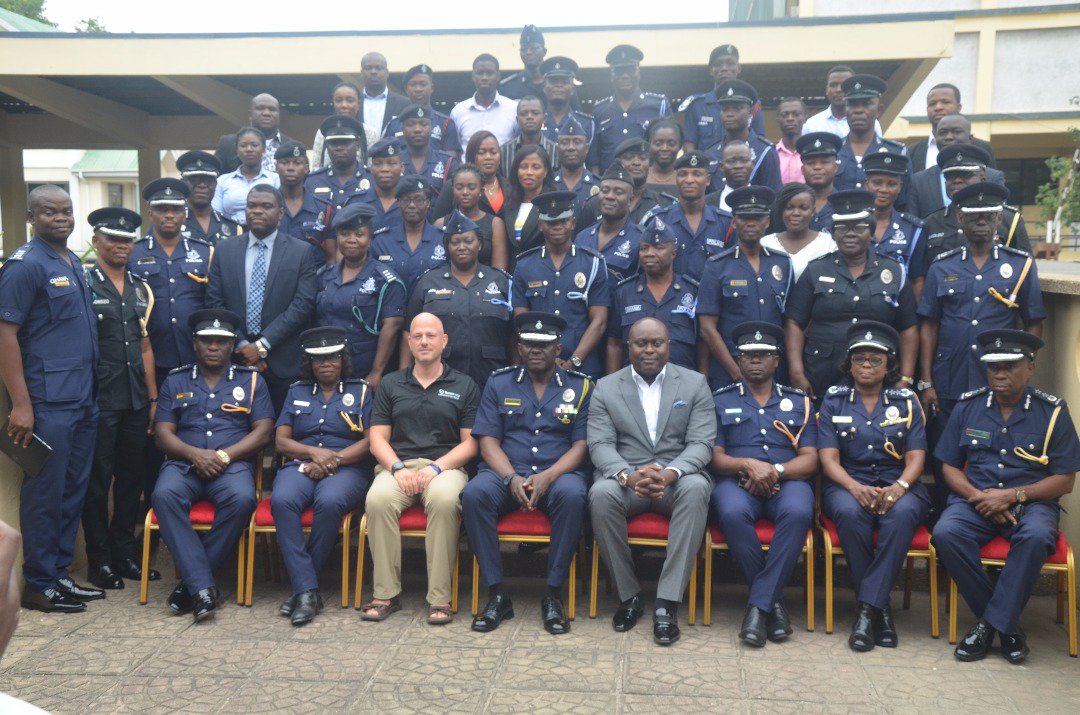Ghana is a country in transformation. In the midst of economic challenges, changing demographics, high unemployment rates and global market disruption, the people of Ghana work tirelessly to keep pace with global innovation and technology. To learn how to quickly inspect and adapt to changing variables and to protect and serve the citizens of Ghana, the Ghana Police Services (GPS) began adopting the Scrum framework in January of 2017.
Scrum is an agile framework that cuts through complexity to focus on building products that meet business needs. With Scrum, products – or outcomes – are delivered incrementally and empirically.
At its very core, Scrum is a simple framework for effective team collaboration on complex products. Organisations such as the FBI, Interpol, Barclays Bank and the British Government have all applied Scrum. Some estimate that over 12 million people practice Scrum around the world.
>See also: Big data and analytics in the UK Police Force
The GPS’ adoption of Scrum highlights their mission to become “a world class police service capable of delivering planned, democratic, protective and peaceful services up to standards of international best practice.” That is their product.
In aspiring to achieve this premier level of performance, they have set a goal of becoming one of the top ten police services in the world within four years. The GPS is also dedicated to meeting the United Nations Sustainable Development Goal 16, which identifies Peace, Justice and strong institutions at the core of sustainable development. The United Nations global yardstick ensures a strong, effective, accountable and inclusive police institution in Ghana.
The drive to reinvigorate the GPS was not only based on these aspirational goals, but the very real need to address the rise in violent crime in Ghana over recent years, including organized crime and terrorist activity there and in its neighboring countries.
With roughly 33,000 police officers and 14,000 community support officers, undertaking a transition to Scrum is an enormous challenge. To stay organised, the GPS established the Transformation Programme Office (TPO), an agile organisation with Backlog of Themes, Epics and Stories, using Scrum and the Evidence-Based Management framework (EBMgt). At the apex of this office is GPS’ Inspector General of Police (IGP), David Asante-Apeatu.
>See also: Police officers lacking IT skills should be fired – report concludes
A frequent speaker at Agile events in the region, including several appearances at the annual Agile Africa Conference. In 2016, Mr. Asante-Apeatu anchored the GPS Scrum program to align modernisation objectives for the Ghana police, set by the current government under President Nana Akuffo Addo.
Scrum in action
The TPO – reporting to the IGP – manages the police services’ entire transformation agenda, engaging with internal and external stakeholders across all areas of the GPS. Comprised of officers as well as trained civilians, the Scrum Team follows not only the Product Owner – the leader of the project and, in this case, the IGP – but an experienced Scrum Master & Agility Coach trained by Scrum.org and their partner Akiditi, to meet the objectives of becoming a fully Agile organisation
. Working to achieve a total of 13 strategic objectives, the team runs 28-day Sprints with clear goals and directions from the IGP for each Sprint. This drives everything that they do including Sprint Planning, Daily Scrums, Sprint Reviews and Retrospectives. At the conclusion of each Sprint, improvements are carried forward.
>See also: Police encouraged to further embrace digital by Londoners
This process is having an enormous impact on the GPS. Not only have they accelerated toward their goals using clearly defined understandings of “Done” and maximising improvements along the way, but at the conclusion of each Sprint there is a tangible result, which motivates the force to continually improve.
Measurable outcomes, motivated teams, successful projects
In addition to utilising Scrum and scaling its effectiveness with EBMgt, the TPO also assembled a Scrum Studio to develop and deliver software products and develop new in-house ICT capabilities to improve Police operations.
Overall, the GPS’ efforts have resulted in tangible outcomes, including multiple pilots and plans encompassing everything from regional drone squads and digitising CID forms for ePolicing to the adoption of Office365.
Additional outcomes include a new GPS website, public-facing mobile app, police-wide personnel SMS communication and a solar power pilot with Off Grid Electric, backed by Elon Musk’s SolarCity.
>See also: Social media can act as a bridge between public and police
The GPS has undertaken an ambitious project with goals that will take the dedication of the entire force to meet but, if early results are any indication, the GPS is well on its way to realising those strategic objectives that will make GPS a world class police organisation.
The GPS also serves as a strong example of the far-reaching applications of Scrum to organisations outside the typical software model. With Scrum, a team is a team, whether it’s a group of engineers, police officers or high-ranking officials – with Scrum, all team members are equal in importance of reaching Done.
To read the Scrum Guide and learn more about Scrum visit: https://www.scrum.org/resources/what-is-scrum
Sourced by Dave West, CEO, Scrum
The Women in IT Awards is the technology world’s most prominent and influential diversity program. On 22 March 2018, the event will come to the US for the first time, taking place in one of the world’s most prominent business cities: New York. Nominations are now open for the Women in IT USA Awards 2018. Click here to nominate










